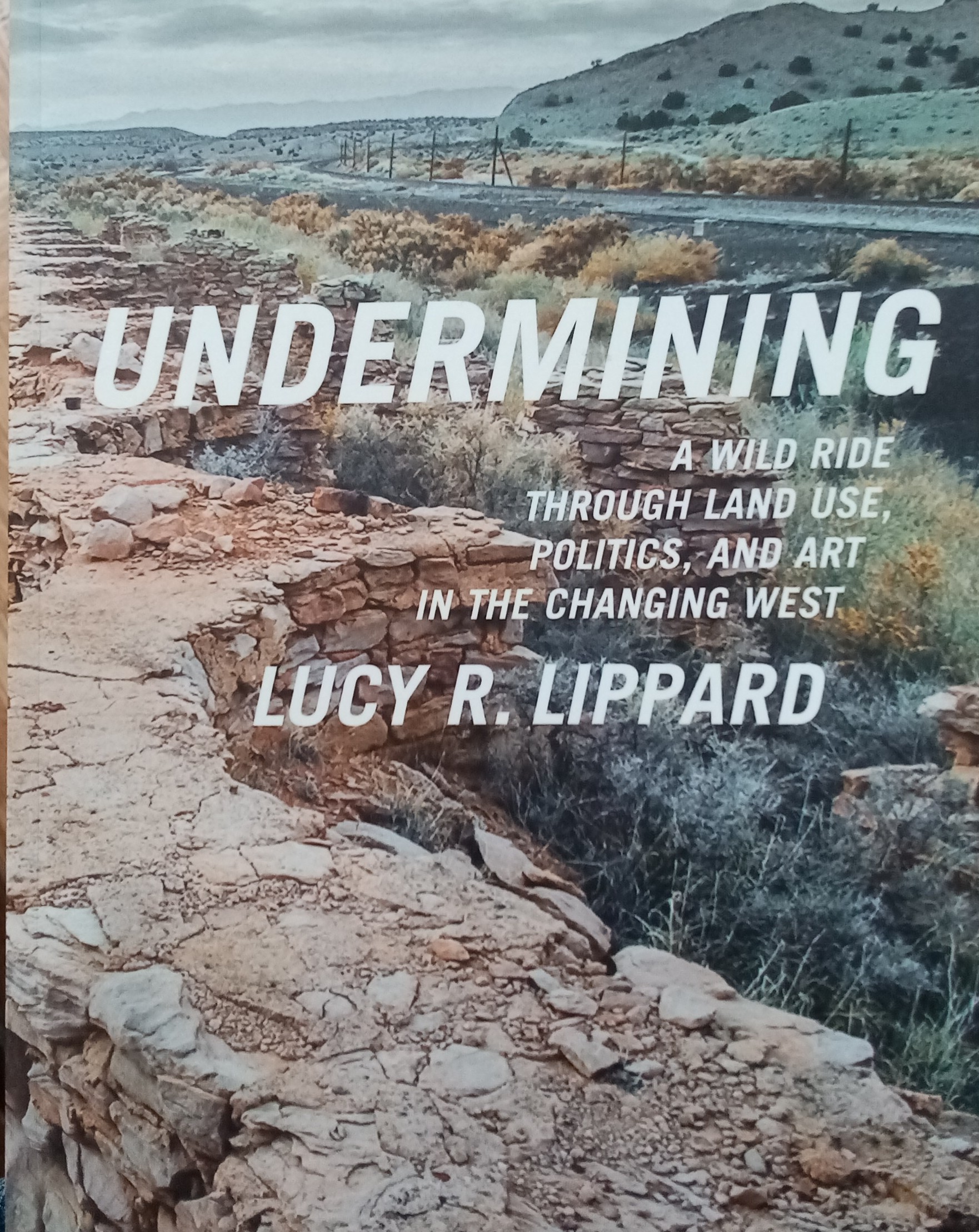Fionnáin reviewed Undermining by Lucy R. Lippard
Digging into land, activism and art
3 stars
Lucy Lippard is a well-known voice in the area of land and site-specific art. Undermining repositions this voice to land activism situated particularly in the American west, where she has repositioned herself. Using a mixture of photography and writing, it tells a story of gravel, adobe, uranium, fracking and water, considering what happens in the subterranean realm.
Lippard presents strong (and worrying) points about land use and land law, but never really finalises her points. She makes a couple of howlers, spending a long time discussing Western land artists and then paying lip service to native art (which seems more important in this context), or suggesting "truth" in pre-Photoshop photography. The book is also very American-centric, and despite her statement that the local represents the global, her arguments do not hold from a global perspective if you are familiar with art or activism outside of the USA. Despite these …
Lucy Lippard is a well-known voice in the area of land and site-specific art. Undermining repositions this voice to land activism situated particularly in the American west, where she has repositioned herself. Using a mixture of photography and writing, it tells a story of gravel, adobe, uranium, fracking and water, considering what happens in the subterranean realm.
Lippard presents strong (and worrying) points about land use and land law, but never really finalises her points. She makes a couple of howlers, spending a long time discussing Western land artists and then paying lip service to native art (which seems more important in this context), or suggesting "truth" in pre-Photoshop photography. The book is also very American-centric, and despite her statement that the local represents the global, her arguments do not hold from a global perspective if you are familiar with art or activism outside of the USA. Despite these issues, there are wonderful poetic moments that contrast erection of buildings with digging holes, and the writing benefits from Lippard's ironic sense of humour and well-judged framing from one section to the next, and in the end is an interesting if flawed exploration of the undermined world.

